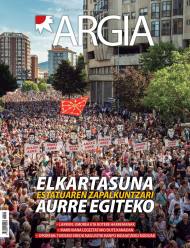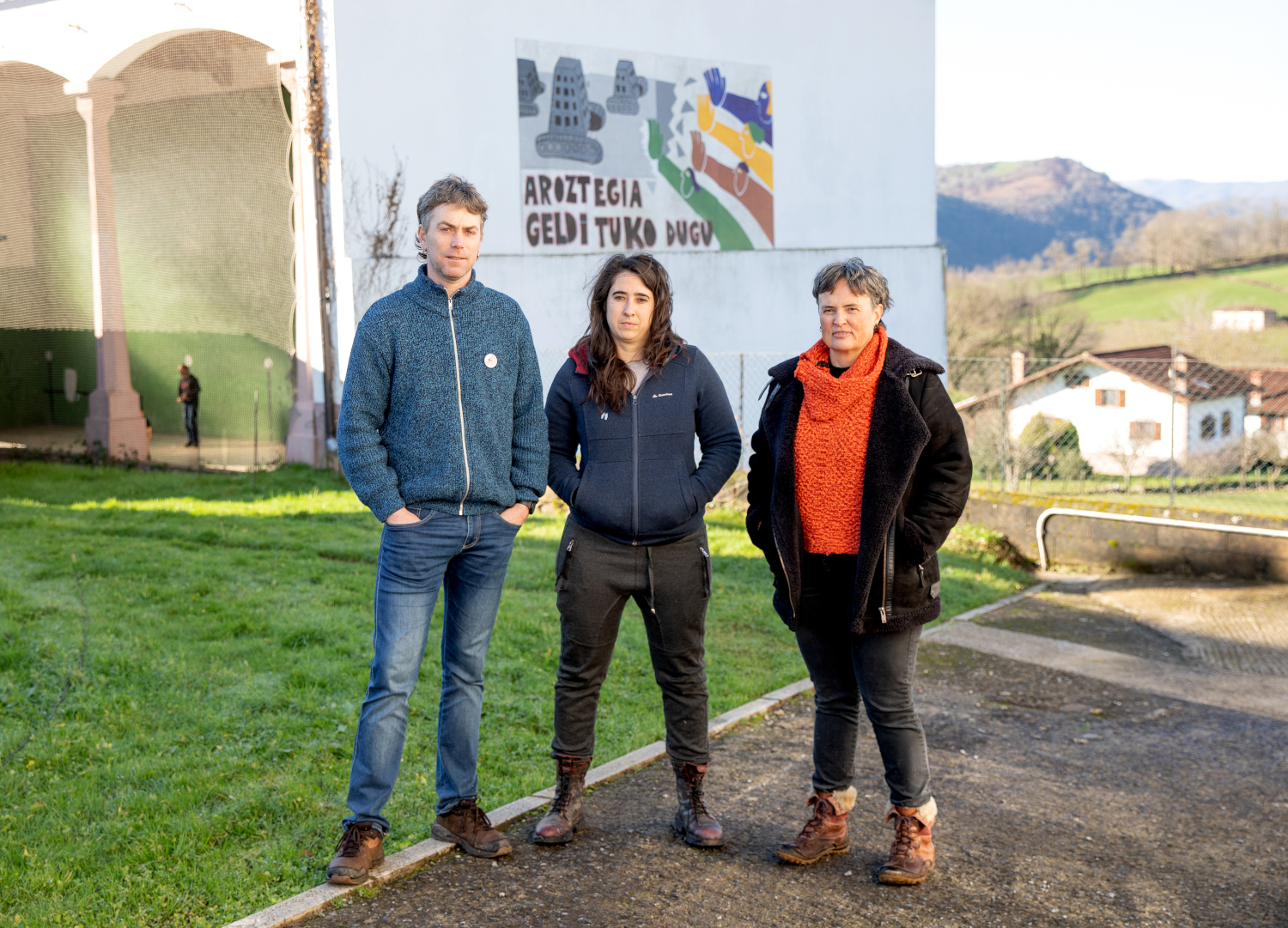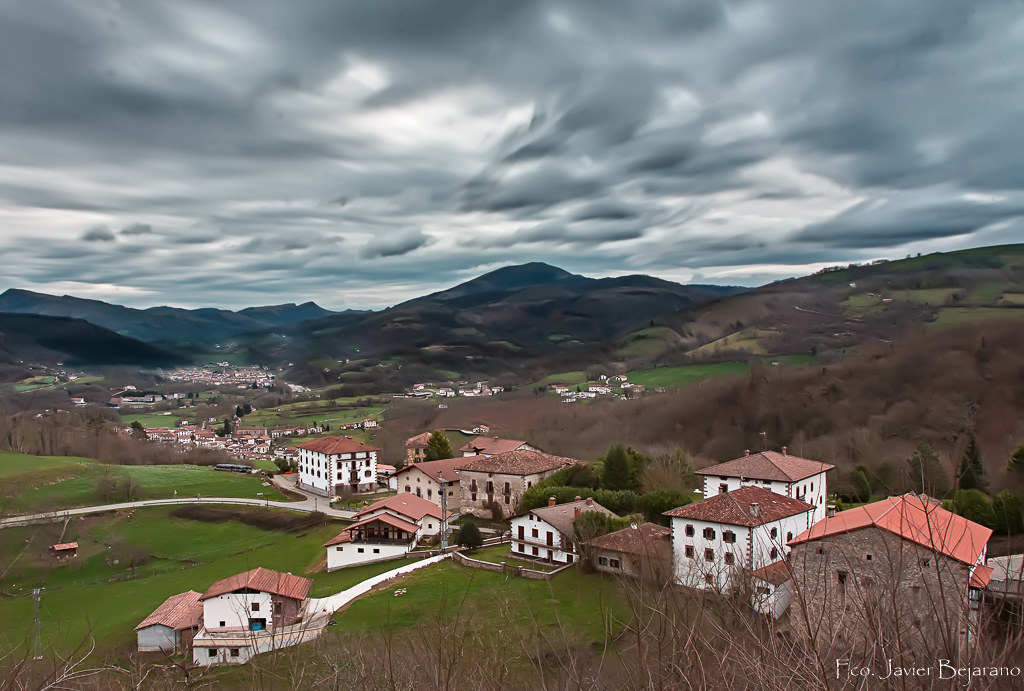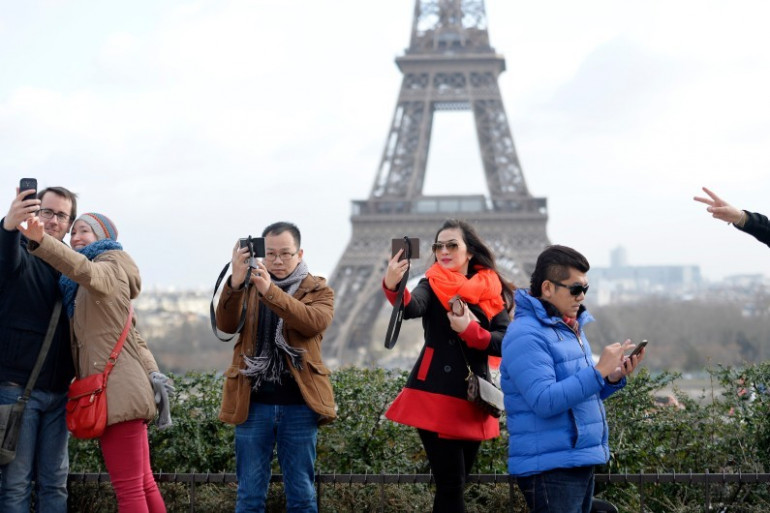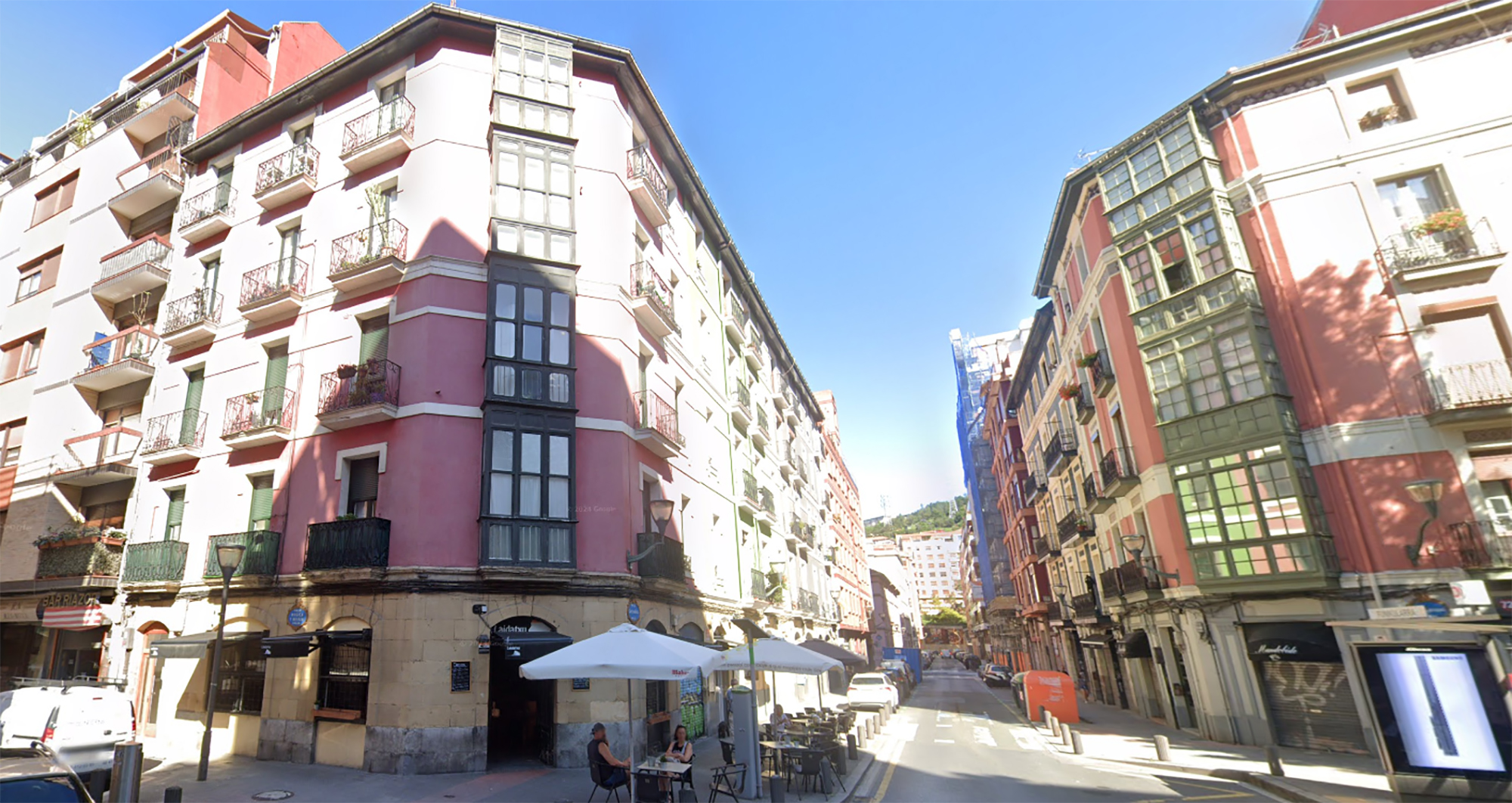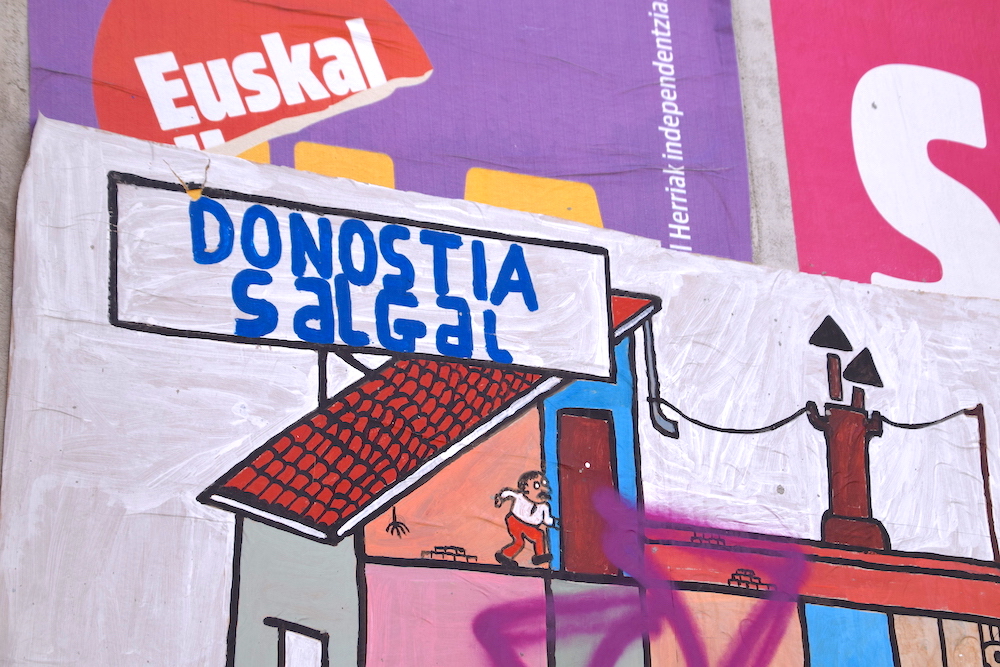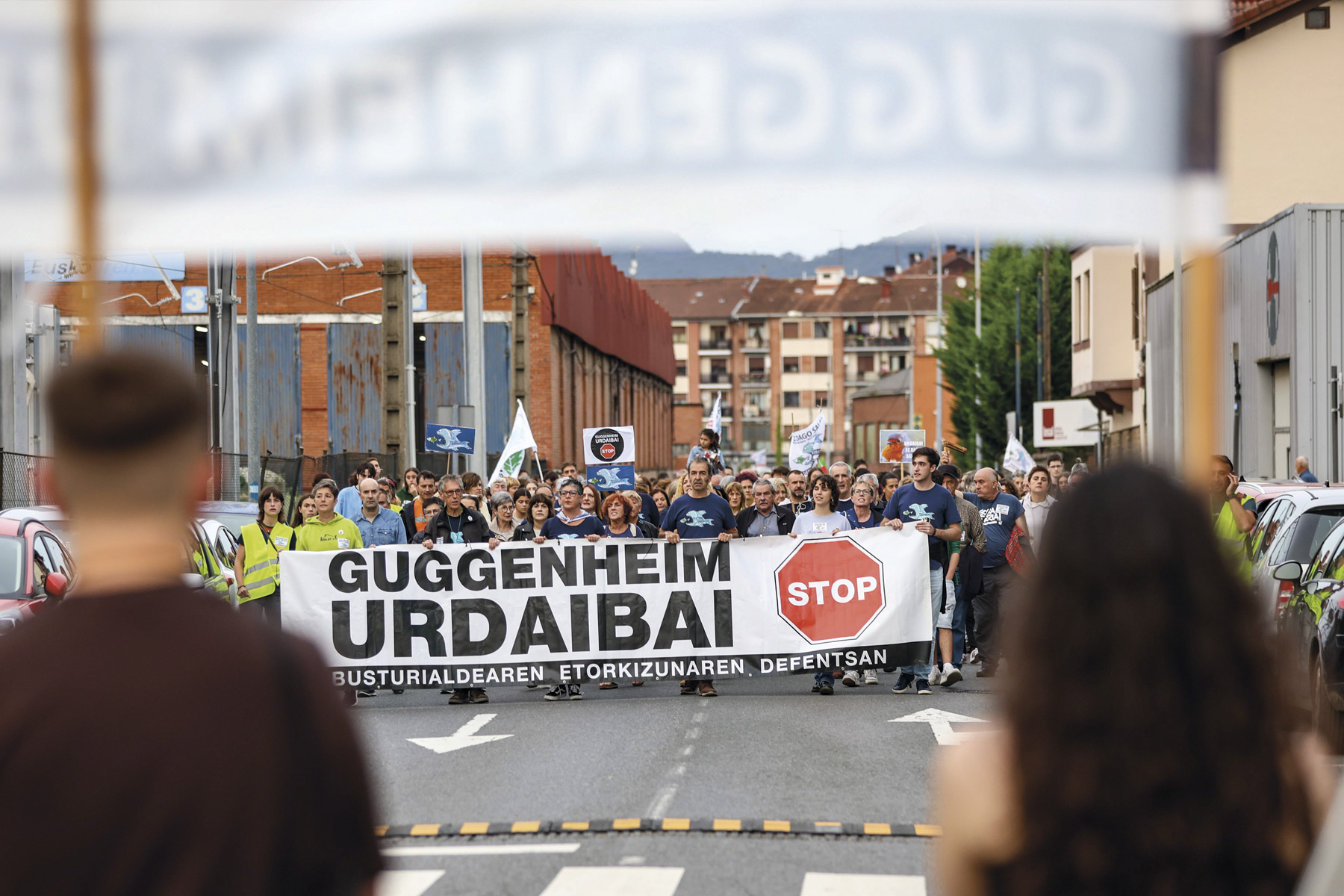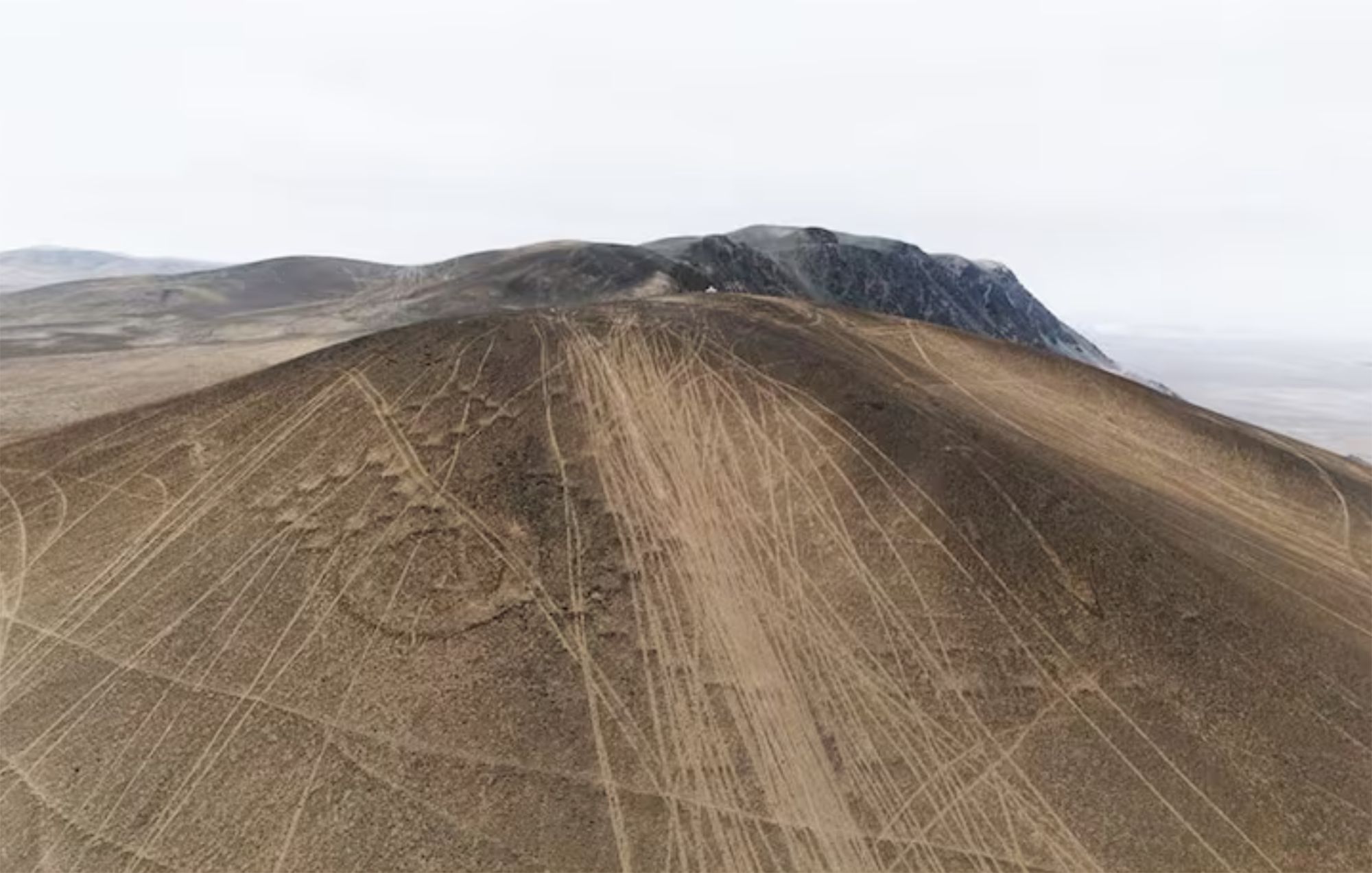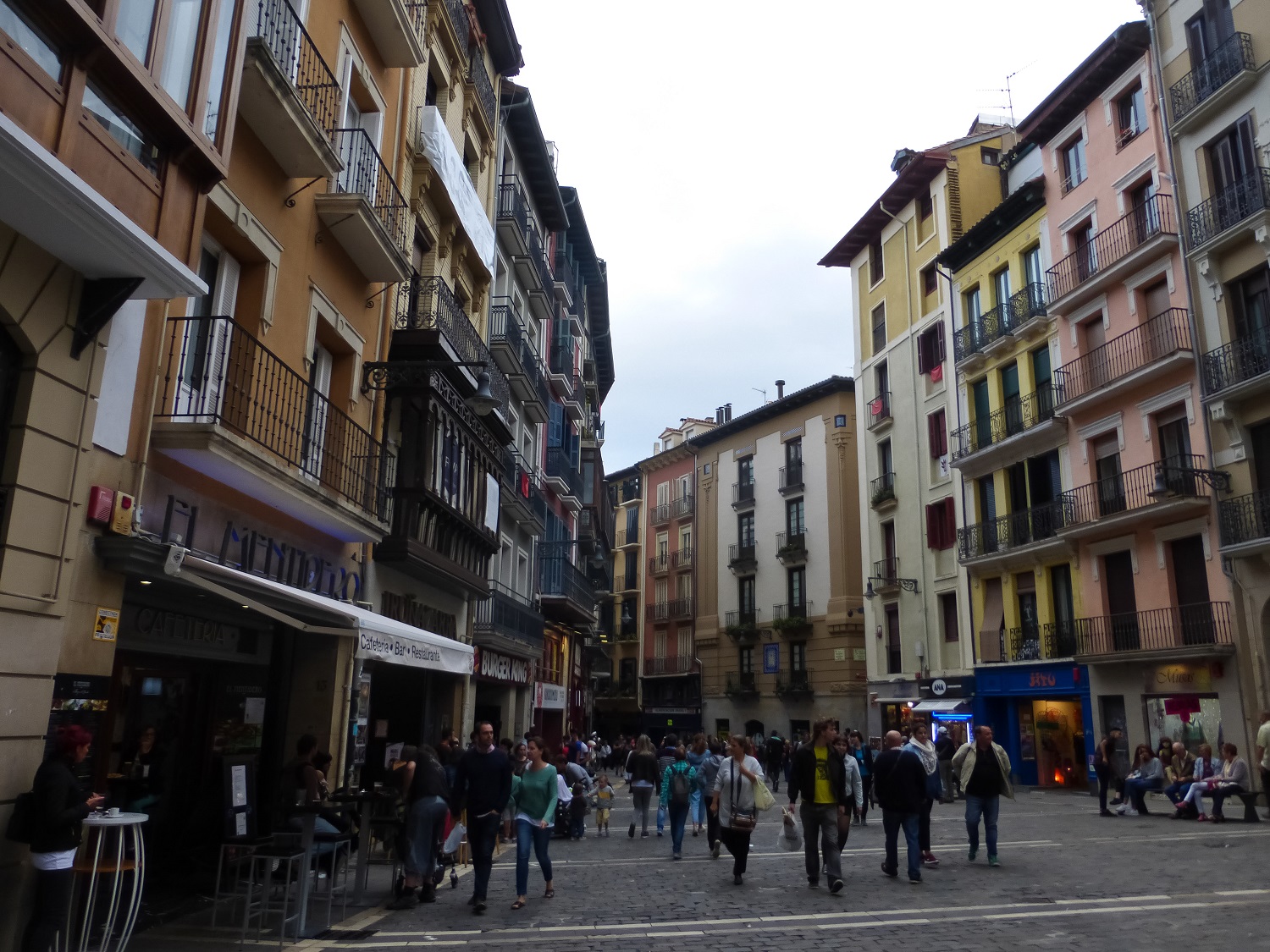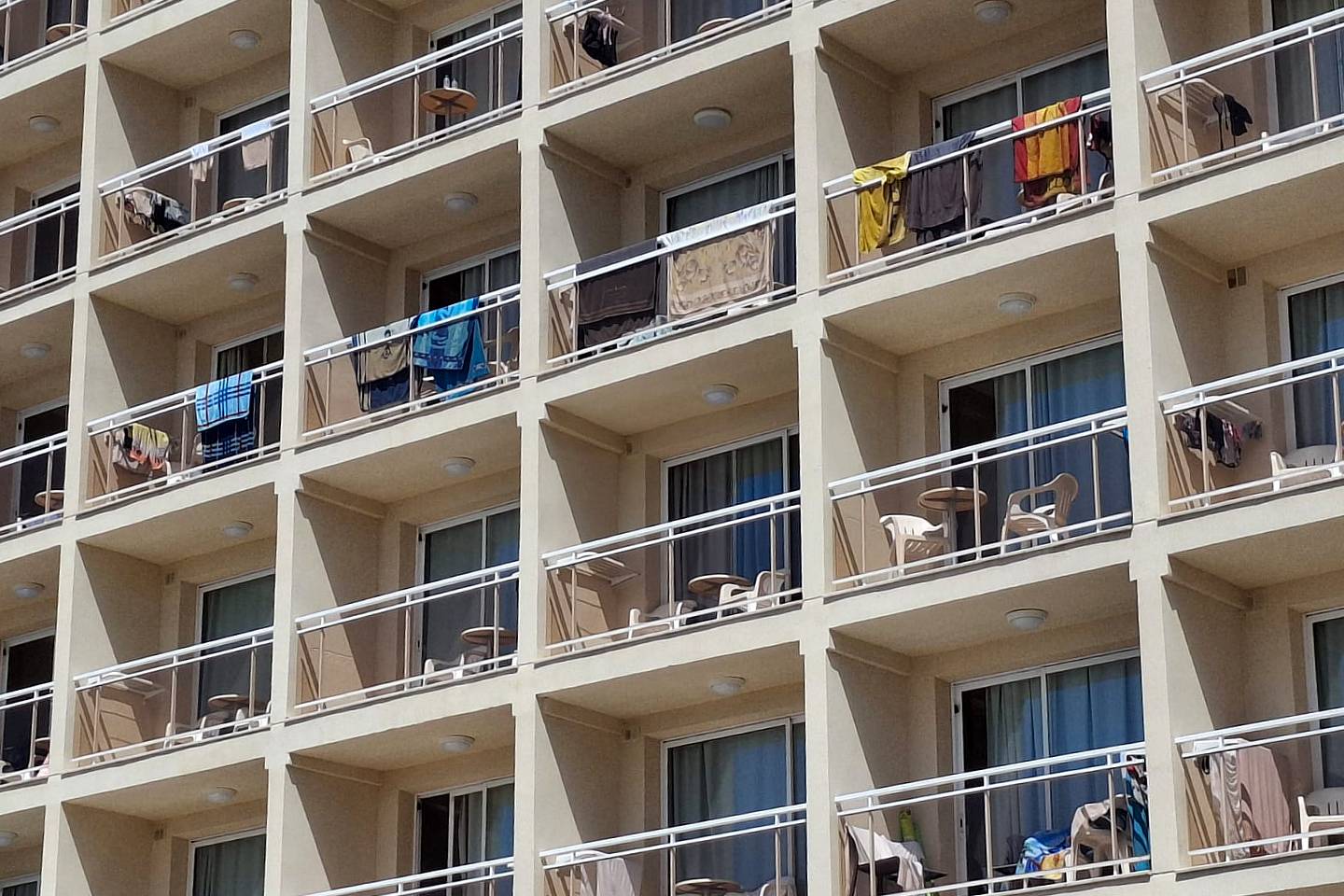October against Turistification was rounded off last Sunday with a multitudinous demonstration in favor of the tourist growth of the Bizilagunak platform, but the debate on turistification is still alive in the city. In particular, they have contacted the tourism of... [+]
How do you travel without feeding the beast?
- Tourism for some disorder and chaos, a source of wealth and prosperity for others. However, the current model leaves little room for imagination: consumption, massification and gentrification are words that we have included in everyday vocabulary. Can this situation be reversed? Are there other ways to spend holidays outside? In the following lines we have talked about the current situation and other possible models.

The tourism model has brought to the city the struggles that have been given so far in the factories. Some want to add productive value to the beach and return to cities and towns the reproductive character: on the top and on the back of the postal clash between life and capital.
“One thing is tourism and another is tourism,” explains Andoni Egia, a local development and urban model technician: “Turistification is a territorial tourism promotion strategy. The historical development of capitalism has fostered globalization and its economic development is not based on material production from so many factories, but on the financial economy.” In short, the mortgage game of urbanism, the debt trade and the precariousness of the workforce needed by the large industry are also part of tourism.
“Tourism is the materialization of the current economic model, the tip of the iceberg. In the Basque Country, Bilbao and Donostia-San Sebastián have committed themselves to economic development based on services, real estate, financial and speculative sectors. Production was not so profitable in capitalism, so capital has moved into the speculative circuit,” Egia explains.
In the amalgam of speculation, land and flowery shirts are distinguished by three players in tourism: sellers or beneficiaries, workers or affected persons and customers. “In Brazil and Bolivia there are Repsol and Endesa that are enriched with the exploitation of land and people, here the beneficiaries are hotels and real estate industries. And above all, banks and vulture funds.”
On the other hand, not all these beneficiaries would invest so much in the Basque Country if it were not profitable, and the truth is that this profitability is given by a cheap labor force to a city like Donostia: “This model of tourism would not exist without the kellys, without those who clean the bathrooms. The labour force used is the cheapest, that is, feminized and immigrant. It is an extremist economic model: nothing is produced, devices have been created to capitalize on common value, such as the beach or the beauty of the city. That needs a precarious workforce to serve the wealthiest. The second exploited are the whole of society, because the city model determines our quality of life.”
Despite being against the current tourism model, Andoni Egia knows that “we are all tourists” and that the fight against tourist travel is often part of a “white and university middle class”. He says that a “articulation” of the labor force is needed, but that this will not end with the turistification unless capitalism is put to an end. In his opinion, there are two alternatives against the tourism model; revolutionary and reformist: “We can create a new socio-economic model that doesn’t need the turistification, the APR, etc., or we can accept that we live in capitalism and that from the political economy of space we think about how to redistribute the wealth generated by tourism. But don’t think that San Sebastian is no longer a tourist.”
However, the current picture of mass tourism has a counterpoint. Often more committed, cooperative and close, but not less opportunities. The chairs and umbrellas of the beaches that are left in the garage and require a greater relief.
Periphery of tourism
The institutions and, in general, those who continue to extend the discourse of the standard tourism model would not immediately believe that there is the possibility of enjoying free time between pines and even far from the center of the city. The farmhouse Pikunieta is located in a high of Bergara, deviated by the road between Urretxu and Azkoitia, in the middle of the dry forest. The road is winding, with many turns and in some areas quite dangerous, as with rain and mud the road is slippery.
.jpg)
Joxe Ramon Arrieta and Josebe Blanco have been in charge of opening the house doors. It's midday, the bulle casserole and it clears a delicious smell in the entire kitchen. “There is never a lack of work here. There’s always something to do,” they said. At first we were recognized that they had not understood very well the idea of interviewing them when we called them by telephone for a work on tourism: neither the owners of a rural house, nor the managers of a company that organize guided tours in the rural environment for outsiders; their daily life is the key to understanding their relationship with tourism.
Blanco and Arrieta are members of the World Wide Opportunities on Organic Farms organic production network. It is an international volunteer network in which there are ecological husbandry, whatever its activity: cattle ranching, fruit harvesting, orchard… In Pikunieta they work with sheep, taking out the humpback selling the cheeses of the house. At home there are five brothers, but according to the time they have a wwoffer or two at the turn of the same table. This is how they call guests who come home to know and learn the world of the dwelling. “On the WWOOF network, the cottage offers accommodation, meals and accommodation. In return, the volunteer undertakes to dedicate 30 hours a week to the house and to learn through his activity. Each house, however, marks in its own way what the daily activity will be,” said Blanco. Arrieta says that above all it is a way of knowing “other kinds of people”: “We want to meet people, support us and show our way of life”. Each household sets its minimum stay. We have a minimum stay of 3 weeks in Pikuvas.
As we talk, a young couple walks into the kitchen. Elena Galán and Guilhem Capdeboscq, family members for three weeks from Pikunieta, will be the protagonists of this new edition of the Bilbao BBK Live. They say that they have come to study, that they do not know what it is to work with the sheep and that they have chosen the top of Bergara because they wanted to know the world of livestock. Galan is Catalan and Capdeboscq is French. Upon learning that we were going to eat to talk about tourism, they wondered if that was what they were doing in the Picunias, as it is a “different” way of knowing another place. Capdeboscq believes not, because he associates tourism with leisure and that his is “more than a leisure”. Galán looked at him with perplexity and launched the first ORDAGO before the meal: “Perhaps tourism should be something like this, which is done on a small scale and in a very integrative way.”
.jpg)
Arrieta agrees with Galán and says that in the background we are all the tourists and also the domineros. “Rural tourism is not massive, but it is the tourism of cities.” Blanco has added that cities, towns and people are “daring” and that in that scheme almost everything that the system receives becomes “product”. It is not involved in this whirlwind, as the decision that influences their children’s education was to integrate into the organic production network and consider WWOOF as a “very enriching” way of life: “I do not associate woffing with tourism. For me, tourism has an unpleasant tone, and I have a hard time putting it in relation to our house. Those who come here want to learn and the stay is a small part of the learning process of their life. In addition, today we have a relationship with many of those who have been here, and we take care of each other. That’s more than tourism.”
Elena Galán is
from Barcelona and does not feel strange in the Pikunieta farmhouse, at least with the idea that unites her as a tourist: “Living a life I don’t know is for me to be here.” She's been working as
a pastor for
two weeks.
Galán does not feel a stranger in the Pikunieta farmhouse, at least with the idea that unites him as a tourist. “I’m from Barcelona and for me tourists are something negative. There was a time when too many influences were produced in my day to day. From having five minutes to go to work, I went on to have 20 minutes because I had to avoid people in the street.” It currently resides in Bizkaia and states that the experience gained in organic production is a learning process. “Living a life I don’t know is for me to be here.” He has been working as a pastor for two weeks and, although I would never imagine, he is living first-person scenes he has seen on television, such as animal grazing. In addition, he is learning Basque and, as Blanco has pointed out, it is common for visitors to use the stay to practice the language. Capdeboscq will take advantage of the experience to get to know the inner workings of the dwelling, as the current lifestyle relegates the knowledge of the dwelling in the urban centers.
.jpg)
Backpack full to avoid emptying pockets
Daisy and Koxm cross around about twenty countries with their backpack on their back. They did not want to give names or surnames, but they were willing to bring them to these pages of experience. A little over a year ago they landed in Thailand, where they have moved from one place to another with the most necessary things and almost always with a stop. The passport contains stamps from Thailand, Cambodia, Laos, China, Mongolia, Kazakhstan, Kyrgyzstan, Tajikistan, Turkey and many countries in Europe.
Margarita and Koxme are proof that you can travel without spending a fortune. They have been away from home for a year, and between them they have needed around 5,000 euros. To do so they have put all the savings machinery in place: to put aside the whims, to avoid the most touristic corners and to work from time to time. Although they have given up many amenities for money, they have managed to get close to people and visit extraordinary places. “Our museum was sitting on the street and seeing people,” says Koxm.
.jpg)
To the question as to whether they were tourists that year, Koxm has answered with revulsion: “When you travel, being a foreigner clearly marks you. You're a tourist, whether you want it or not. We laugh at people who claim to be ‘traveler’ or traveller.” On the other hand, they are aware that being a European is a privilege to travel abroad and that as a result they have also been able to save. “By doing Autostop, for example, in Thailand, we were very easily received. We could almost choose the color of the car,” said Margarita.
Although in western Europe we associate leisure with consumption, in most countries visited by Margarita and Koxm there was no such habit: “We were happy with one meal and one day by a river, we thought
we didn’t need anything else.”
They have often slept in the street, others in the hostel or in the house of their friends. Roads have been crossed in cars, trucks and motorcycles, and vehicles have been diverted. Although in western Europe we associate leisure with consumption, Margarita and Koxm claim that in most of the countries they have visited there was no such habit. “We were happy with one meal and one day by a stream, we thought we didn’t need anything else,” said Margarita.
From couch to couch, by the world
Those who do not want to travel in campsites or without a safe place to sleep, do not think about spending the summer season at home. If the rural world or the wild vast world does not attract enough people, technology and society have already made many other options available to them.
The first time Libe Osa Arzuaga was sleeping at the house of a "stranger" in Peru, in exchange for a company, he went to Peru. He spent five days with a family, sharing meals and leisure with them: “I found it a useful tool to travel and meet people.” The second time he spent half a dozen days in a hostel shaped inn. “A girl had put her house as a hostel and had booked a room for couchsurfing users. It was a unique experience, and I felt so grateful that I decided to make my house available to others when I returned to the Basque Country.” Said and done: as soon as they returned home they informed their parents about the project, and as they agreed to it as a family, they updated the profile of the website. In general, Libe says that the passengers are young people who are interested in the area and that, after spending a couple of days at home, they leave. “It’s an economic, enriching and good choice. Yes, it takes time, effort and desire.”
In addition to the three concepts mentioned, this possibility of spending a different summer requires one more factor: having a house of its own. It is a question of picking up another person’s attic in return, without any cost to the accommodation. Juan Carlos Reparaz has been ceding the house of Arbizu to other families during the holidays. He has been in Brugas, Marseille, Girona or Menorca, among other places, enjoying his family holiday in houses abandoned by strangers, among other places. The “unknown” families were at first, as today, after ten years, they keep in contact with some people. “We’ve been in Bruges twice, as we get unparalleled treatment with the owners of the house.” The exchange takes place via a website on the internet. Reparaz says it’s a unique opportunity, but warns that you have to “have your head open”, as it’s not common for anyone to open their doors wide.
Ilbeltzeko igande goiz batez jo dugu Baztanera. Eguzkiak oraindik ez du Lekarozko plaza argitu; bertan elkartu gara Garbiñe Elizegi Narbarte, Itziar Torres Letona eta Ernesto Prat Urzainkirekin. Itzaletan hotz egiten du eta umorez goxatu dugu lehen agurra, hogei urtean... [+]
The Atacama Desert Foundation has denounced on social networks the destruction of the geoglyphs of the area and, through several photographs, has shown the destruction that visitors who travel in 4x4 vehicles to the desert are causing. These are large geoglyphs made between 1000... [+]
Close the computer, put on chanclets, stroke with the sun cream. Where are you going on holiday? We've normalized that vacation is going somewhere, because rest needs distance, we say. And when we make the journey, we will become tourists, even if the change of denomination... [+]
The pintxos of many bars in the Old Part of Donostiarra come to serve in a van with permission to access the old part of Donostia. In the other bars, to eat the potato tortilla pintxo they prepare, you have to queue and take the turn when the morning van enters the old town. A... [+]







